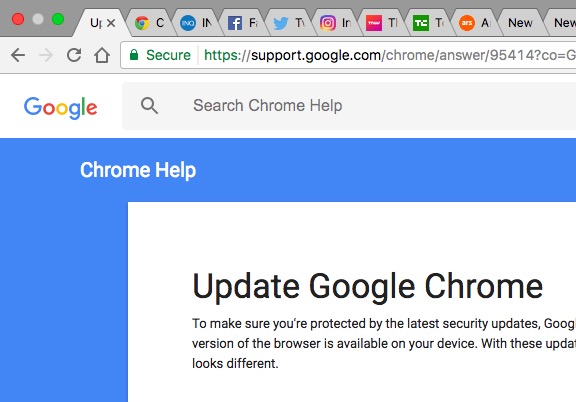Chrome 57 update to cap background tabs at 1% CPU usage
Chrome is notoriously known for using up a lot of CPU cycles, in turn quickly drying up laptop batteries. Its recently released Chrome 57 update is looking to address this issue by limiting the resources that background tabs use.
This update was pre-empted by the Chromium team in September last year when they announced changes on how Chrome handles background tabs. With the update now implemented, background tabs will be limited to 1 percent CPU load on average on a single core, reports Ars Technica.
Chrome 57’s process for monitoring background tab activity is rather complex. Each tab is given a budget in seconds for how much CPU wall time it can use. Wall time is the real-world measure of the time it takes for a process to start and finish. A background tab is only allowed CPU access until its wall time budget is consumed. Wall time budget constantly regenerates but at a rate of a mere 0.01 seconds per second.
However, there are a few exceptions to the rule. Background tabs that are playing music or have a real-time connection to remote servers using WebRTC or WebSockets will not be throttled down. For the time being, Google is gathering data on the behavior of throttled applications and may still tweak the wall time budget regeneration rate.
The Chromium team reports to seeing “25 percent fewer busy background tabs” with the update.
Google is not stopping here. Future plans include further optimizing background tab behavior in Chrome until they reach the goal of complete background tab suspension by 2020. For late 2017, an update for mobile platforms will have background tabs immediately suspended. 2018 may see WebWorkers being throttled as well, pending gathered data.
Current websites run a lot JavaScript and even some antiquated flash ads that use up RAM and CPU resources. When allowed to keep running indefinitely in a multi-tab scenario, it eventually leads to sluggish computers and drained batteries. With Google’s continued work in optimizing Chrome and adapting a new Web technology called Service Workers, users may one day be able to work on their laptops for days on end on a single charge. Alfred Bayle/JB
